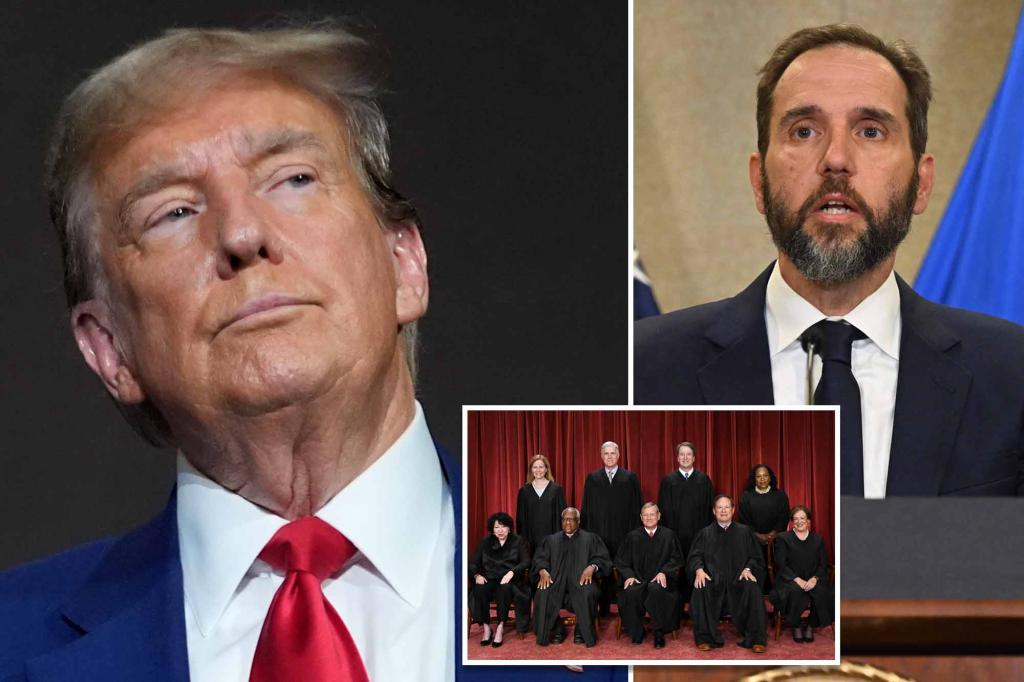Special counsel Jack Smith has asked the Supreme Court to reject former President Donald Trump’s immunity claim in the federal 2020 election interference case. Smith argued that Trump’s claim of immunity goes against the principle that no one is above the law, including the President. He stated that the President’s duty to execute laws does not give him the right to violate them. Smith also noted that historical precedent shows that former Presidents can face criminal liability for their actions.
Smith criticized Trump’s interpretation of presidential immunity as “radical” and stated that it would essentially exempt the President from almost all criminal laws. The Supreme Court is set to hear oral arguments in Trump’s immunity case the week of April 22. A federal appeals panel had previously rejected Trump’s argument, ruling that the President does not have the authority to commit crimes that would undermine the checks on executive power.
Trump’s lawyers argued that he could not be charged by Smith because his election machinations were part of his official duties. They also claimed that the current case amounted to double jeopardy following Trump’s impeachment by the House of Representatives after the January 6th Capitol riot. However, a federal grand jury indicted Trump on four felony counts last summer, including conspiracy to defraud the United States and obstruction of an official proceeding, over his alleged attempts to overturn the 2020 election results.
Smith accused Trump of making false claims of voter fraud in an effort to retain power. If the Supreme Court rules in Trump’s favor, the federal charges against him could be dismissed. Smith argued that historical precedent, including President Nixon’s acceptance of a pardon after his involvement in Watergate, shows that former Presidents can be subject to prosecution. He emphasized that the principle of accountability for Presidents extends beyond their time in office.
The case against Trump is significant as it raises questions about presidential immunity from prosecution after leaving office. If the Supreme Court rules in Trump’s favor, it could set a precedent for future cases involving former Presidents. Smith’s arguments against Trump’s immunity claim highlight the importance of holding all individuals, including former Presidents, accountable for their actions. The outcome of this case will have implications for the balance of power between the branches of government and the rule of law in the United States. It remains to be seen how the Supreme Court will rule on this contentious issue.


